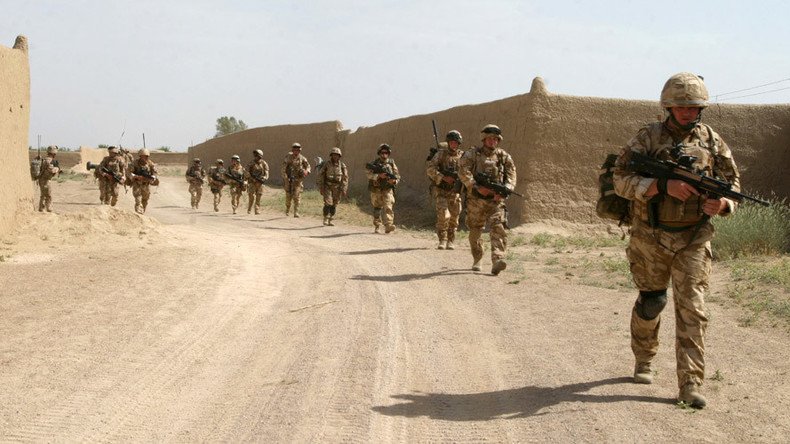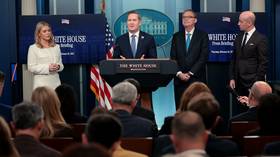UK govt gambled with troops’ mental health over Iraq & Afghanistan – Chilcot

Multiple wars fought at the same time saw the British government risking troops’ mental health by ignoring their own guidelines on repeated, back-to-back deployments, the Chilcot Inquiry has found.
The report found that so-called ‘harmony guidelines’ were ignored or broken due to the heightened operational tempo of fighting two parallel wars in Iraq and Afghanistan.
Lawyers are reportedly scouring the 2.6 million-word report into the Iraq War even as the families of those killed and mentally or physically scarred consider the damning verdict delivered by Sir John Chilcot’s seven-year investigation on Wednesday.
It appears that the military’s guidelines, which experts have said were well-founded and important to mental health, were regularly ignored.
The report found that: “The government’s decision to contribute a military force to a US-led invasion of Iraq inevitably increased the risk that more service personnel would be put in breach of the harmony guidelines. The issue of the potential pressure on service personnel was not a consideration in the decision.”
The 2006 deployment to southern Afghanistan merely compounded the impact on troops, it was found, with further breaches of the guidelines taking place.
Figures now show that thousands of troops were placed at breaking point in the course of the wars.
During the much-delayed inquiry, Ministry of Defence (MoD) officials told Chilcot that in 2004 alone the rules were broken for as much as 18 percent of the 28,000 army troops fighting in Iraq. That is an estimated 5,000 troops.
The guidelines continued to be violated, but with breaches dropping to 10 percent by 2009.
The RAF also broke the rules for between 2 and 10 percent of the 7,000 airmen it deployed between 2002 and 2009.
Former King’s College professor of military sociology Christopher Dandeker, who is also co-director of the King’s Centre for Military Health Research, has previously told the House of Commons that the rules were well-made to protect service personnel.
“The evidence suggests that if you stay within them they [service personnel] do not suffer; if you go beyond them there is a 20 percent-50 percent likelihood that they will suffer in terms of PTSD,” he said.
Recent years have seen fears of an epidemic of PTSD (post-traumatic stress disorder), and in March 2016 it was reported that desperate calls to a helpline used by serving and former military personnel had surged by 85 percent.
The Soldiers, Sailors, Airmen and Families Association (SSAFA) said many callers have problems with mental health, work, housing and relationships.
The charity said the rise reflected the stress military personnel and their families are under.
A February report by MoD Statistics claimed more than 10,000 physical wounds were sustained by British military personnel during the Afghan war and that psychological injury remains rife among UK veterans who have returned home.
The figures were compiled by the UK’s cutting-edge military field hospital, which operated in the war-torn state between April 2006 and 2014. The year 2014 marked the official end of Britain’s combat role in Afghanistan, codenamed Operation Herrick.













